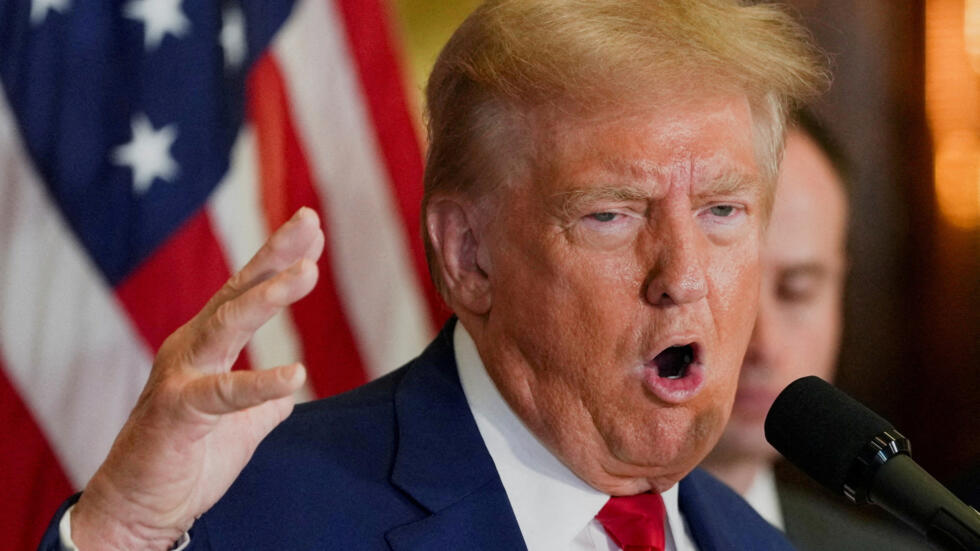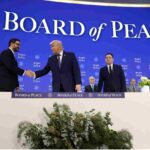
The United States government has adopted new restrictive measures against Chinese students, causing academic reactions and among international relations experts.
According to a report published by Politico On Wednesday, 28, Senator Marco Rubio stated that the country will “aggressively revoke” the visas of students from China as part of a national security strategy.
The action is aligned with guidelines from the government of President Donald Trump, who provide for the hardening of the rules for foreigners in higher education institutions.
The measures include temporary suspension of interviews for new student visa requests and the evaluation of a broader social networking tracking system as part of the screening process. In addition, President Trump suggested the imposition of a 15% ceiling for the presence of international students at Harvard University, an institution quoted by his government as supposedly “liberal” or “anti -Semitic”.
The official argument for new restrictions is the fight against “non -traditional espionage”. However, the amplitude of the definition and the form of application have been contested by members of the academic community.
Mary Gallagher, dean of the Keough School of Global Affairs at the University of Notre Dame and Chinese politics expert, said: “The US government needs to take into account the risks of non -traditional spying, but the way they are tracing these borders is too wide and poorly defined. All universities in China are somehow linked to the Chinese Communist Party, so that seems to me an exaggeration and harmful Not only for educational education between US and China, but also for US competitiveness and technological. ”
Stephen Orlins, chairman of the US-China National Relations Committee, highlighted the possible economic effects of restrictions.
“If you walk through the Silicon Valley, you will see thousands of Chinese students or former Chinese signs making enormous contributions to the United States, our entrepreneurship. Revele their visas will cut this source and create long-term damage to the United States,” he said.
Restrictions occur in parallel to bills in Congress. The House of Representatives approved a proposal that vetoes the transfer of funds from the internal security department to American universities that maintain partnerships with Chinese institutions considered linked to Beijing’s security apparatus. The classification even reaches universities like Duke.
The current position of the government resumes similar guidelines to those of the “China initiative”, a program launched during Trump’s first term and then closed after criticism related to racial bias and inadequate investigative conduct against Chinese researchers. At the time, the initiative was the subject of lawsuits and debates on discrimination in the scientific environment.
Despite the contestations, Republican parliamentarians publicly defended the new approach. Senator Ashley Moody (Florida) stated on social network X: “America First. The US is no longer in the espionage import business.
This is a great leadership of @secrubio and @potus. ”Senator Jim Banks (Indiana) added:“ America first. What did you think this did? Vibes? Academic works? Writing? ”, He published, in an ironic tone. Representative Riley Moore (Western Virginia) also endorsed the executive’s position.
Data from the education sector show that international students represent a relevant portion of the US academic economy. In the 2023-2024 school year, these students moved approximately US $ 43.8 billion and were associated with the maintenance of about 400,000 jobs in the country.
In addition to the financial impact on universities, measures directly affect the presence of foreign talents in teaching and research centers. The decrease in international participation can change the profile of institutions and generate consequences for technological innovation, historically associated with academic diversity in the United States.
Since the beginning of the current term, the White House has adopted initiatives aimed at controlling the university environment. Among the actions are the freezing of federal resources to institutions accused of promoting political positions contrary to the government, especially on topics such as immigration, diversity and foreign policy.
The scenario reflects a reorientation of educational policy, which becomes integrating the national security agenda and ideological dispute. The reduction of the presence of foreign students, especially Chinese, is seen by critics as an element of this strategy.
Trump administration has not had a specific schedule for the complete implementation of new measures, but sources linked to the State Department indicate that other universities, besides Harvard, may be the subject of future restrictions based on institutional alignment criteria, international partnerships and financing profile.
International education organizations and university councils are awaiting formal clarifications on the new parameters of visa concession and possible sanctions to the institutions involved. To date, there is no official pronouncement of the China Embassy in Washington on the case.
The issue is expected to be discussed at public hearings in the coming weeks, both in the Senate Foreign Relations Commission and the House Education Committee. The expansion or reversal of measures will depend on the pressure of universities, scientific entities and business sectors interest in the continuity of educational cooperation with China.
Source: https://www.ocafezinho.com/2025/05/29/governo-trump-quer-varrer-estudantes-chineses-das-universidades-dos-eua/

